For the past six weeks I’ve been experimenting with a very high fat diet where I’m getting 65% of my calories from fat. No, that’s not a misprint. The vast majority of my calories are coming fat, and a good chunk of that has been saturated fat. The very same fat you’ve been told to avoid for decades because it would “damage your heart, build up in your arteries, increase your risk of cancer and even lead to obesity.” Curious about how this was affecting my body, I scheduled a full blood panel with our doctor. After seeing the results of that blood work, I shared with my doctor the details of my diet and how I teach people that fat is actually beneficial. She warned me that while this diet may be working for me, I may be the exception to the rule.
Gary Taubes, in his ground-breaking book “Good Calories, Bad Calories”, dug through TONS of research and found something surprising. Fat, touted as harmful for your diet, is a lie. And it’s a lie that has been covered up and repeated so many times, it’s been accepted as truth. We all know what that’s like – we all have that one friend whose stories are so far out of whack but so often heard, that we begin to believe them. I was guilty of thinking this way too; most of us at some point have been. However, not only did Taubes discover studies that uncover the truth about saturated fat and cholesterol – both wrongly put on the “naughty list”, but new studies are now showing just how beneficial they really are[i].
 One study centered on coconut oil, which is a fantastic oil to use for cooking and baking, in shakes, and when topically applied, is a detoxifying agent for skin. Coconut oil is very heavy in saturated fat. It has higher saturated fat content than red meat, which by the way, has more monounsaturated fat than it does saturated. Yet, thanks to the misguided war on red meat and saturated fat, we’ve come to believe that red meat is loaded in this stuff. But I digress. A Brazilian study showed that when middle-aged women replaced their intake of canola oil with the EXACT number of calories from coconut oil, an interesting thing happened. Their HDL (good cholesterol) increased, triglycerides lowered, and they lost abdominal fat. By including more saturated fat from coconut oil in the diet, regardless of the calorie content, several markers for heart health and diabetes risk drastically decreased. I’ll bet they looked younger and more vibrant as well.
One study centered on coconut oil, which is a fantastic oil to use for cooking and baking, in shakes, and when topically applied, is a detoxifying agent for skin. Coconut oil is very heavy in saturated fat. It has higher saturated fat content than red meat, which by the way, has more monounsaturated fat than it does saturated. Yet, thanks to the misguided war on red meat and saturated fat, we’ve come to believe that red meat is loaded in this stuff. But I digress. A Brazilian study showed that when middle-aged women replaced their intake of canola oil with the EXACT number of calories from coconut oil, an interesting thing happened. Their HDL (good cholesterol) increased, triglycerides lowered, and they lost abdominal fat. By including more saturated fat from coconut oil in the diet, regardless of the calorie content, several markers for heart health and diabetes risk drastically decreased. I’ll bet they looked younger and more vibrant as well.
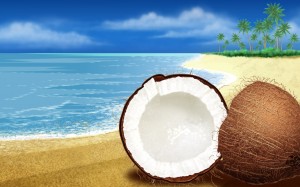 It’s unfortunate. We’ve been told for decades to avoid these foods and build our diet around “good” carbohydrates. Yet, sadly, a high carbohydrate diet can promote weight gain for most people, decrease their HDL, and increase their triglycerides; this is in complete opposition to what conventional dietary wisdom says will happen. And yet we wonder why our children are obese at such young ages, and why our health across the nation is worse than ever. Even my doctor wonders why the vast majority of her male patients don’t have HDL numbers as good as mine.
It’s unfortunate. We’ve been told for decades to avoid these foods and build our diet around “good” carbohydrates. Yet, sadly, a high carbohydrate diet can promote weight gain for most people, decrease their HDL, and increase their triglycerides; this is in complete opposition to what conventional dietary wisdom says will happen. And yet we wonder why our children are obese at such young ages, and why our health across the nation is worse than ever. Even my doctor wonders why the vast majority of her male patients don’t have HDL numbers as good as mine.
Personally, I don’t believe it’s “simply” a matter of will-power, or one of individual responsibility. There are tens of thousands of people who spend hours at gyms and fitness clubs throughout the country, but who are frustrated that the pounds just won’t come off. I see it every single day. These folks tell me they’re eating healthy foods, have cut back on saturated fat and cholesterol, and are increasing their whole grain consumption. Are you seeing the pattern yet? This is NOT WORKING. Living a lifestyle with these parameters only causes us to avoid the foods – the REAL foods – that help to control our appetites, our weight, and lower our risk of disease.
So, how has a diet of high fat and high cholesterol worked out for me? Below is a picture of my results. Look specifically at the numbers circled in red.
These numbers squash claims that saturated fat and cholesterol are the “bad guys”. We’ve been told that red meat, eggs, and bacon increase our blood cholesterol. But I eat these foods along with coconut oil everyday and it looks like I’m doing just fine. In fact, I’m doing better than a lot of people. The studies I’ve mentioned prove that though your total cholesterol may go up, but it’s your HDL that’s holding the torch, and the LDL that’s struggling to catch up. When my doctor saw my HDL of 71, her eyes widened, “I almost never have guys with levels that high.”
If you’re not familiar with triglycerides, they are another piece of the puzzle that can clue us into our health status. When levels get above 150, doctors will get worried that you are at a higher risk of heart or diabetes issues. Mine clocked in at a low 45. My high fat, low-carbohydrate diet looks like it is keeping my triglycerides nice and low, which is further backed by numerous studies. My daily shot of fish oil doesn’t hurt either.
How can you predict the future of your heart health? Take your triglycerides and divide them by your HDL. This is your triglyceride to HDL ratio (TG:HDL). The ratio of triglycerides to HDL was the strongest predictor of a heart attack, even more accurate than the LDL/HDL ratio (Circulation 1997;96:2520-2525). As your ratio creeps above 3.0 and nearing the 4.0 range, the risk of heart problems is increased. Ideally you want to shoot for 2.0 or lower. My TG:HDL ratio is a svelte .63.
I also requested my physician order an NMR cholesterol test for me. This is a relatively new test and not all doctors will be aware of it. But, the cool thing with this test is that it measures the size of your cholesterol particles. While this topic is another article in of itself, essentially the NMR test gives you further input about the sizes of your LDL particles and can clue you into whether or not you have the fluffy “good” LDL (yes, I’m saying right now LDL is not bad cholesterol as you’ve been lead to believe) or if you have more small dense LDL that can be problematic for our health.
Here are my NMR numbers which were taken three weeks after my first cholesterol test. Take note that some of my numbers changed within only a few weeks. I’ll let Dr. Matt Poteet chime in on this section of the article to give his input on my readings.
LDL-P – 1,111
HDL – 63
Triglycerides – 32
Small LDL-P 390
LDL Size – 20.7
As we mentioned in the first part of our cholesterol series, both particle size and particle number are very important to extrapolate useful information from a lipid profile. Some of these levels will look completely foreign to the reader, due to the fact that mainstream medicine has yet to embrace them as a metric for cardiovaclar health. Mark’s test shows the strong trend toward increased LDL particle size, lower LDL particle number, increased HDL, and very low triglyceride which are all hallmarks of an excellent lipid profile. Every physician in America would be ecstatic to see their patients with these numbers, yet Mark produced these numbers eating a diet very high in tropical oils and animal fat which have been deemed terrible for you by the mainstream for decades. This is proof positive that there is much more to the story of heart disease than what we have been told through the years. For a little more information on the NMR test, click here. Interested in taking the NMR test? See this website.
-Matt
At this point, I should note that genetics are not on my side. Heart disease runs rampant on both sides of my family, affecting both parents at an early age as well as my father’s parents. As the saying goes, “genetics load the gun, lifestyle pulls the trigger.” By steering clear of the lifestyle habits on which I was raised, I was able to avoid that smoking gun. High blood pressure also runs in my family and mine is usually “normal” at 120-125/80-85. While on this low-carb diet my blood pressure has only improved and is now usually at 110-115/65-75. No surprise here as a high carb diet will elevate insulin levels which in turn will raise blood pressure. Plus, you retain more water on a high carb diet which will also increase pressure. If anything, I’ve been adding more salt to my diet lately because I’m eating more vegetables. It’s no wonder so many people have high blood pressure these days. They’re just following conventional dietary wisdom.
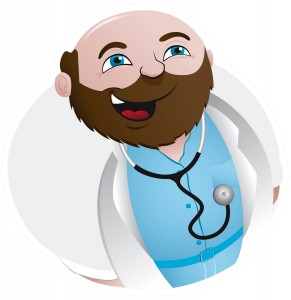
The American Dietetics Association still supports the idea that saturated fat plays a role in increasing our odds of Type 2 diabetes. Yet, if we look at my A1C levels above, which is an average of blood sugar over the past three months, I’m well below the pre-diabetic category, let alone the diabetic one. Some health practitioners believe that 4% is ideal, so personally I’d like to see my number even lower. But after six weeks of this lifestyle, I’ve been able to bring down my fasting blood sugar by almost 10 points.
These recommendations of antiquity, in my opinion, immensely contributed to the obesity epidemic we see today. In fact, many of us don’t see it at all; we take it as the norm. But our “norm” shouldn’t be to expect heart disease, Type 2 diabetes, cancer, and Alzheimer’s as inevitable. Regular physical activity and REAL food will heal your body and your mind; which may give your doctor a stroke, metaphorically, of course.
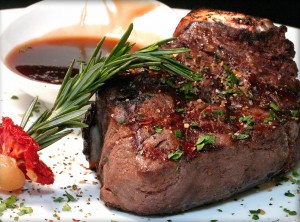 So, eat up America! Red meat (from pasture/grass-fed cows), organic/local eggs (yes, yolk included), and organic bacon is back on the menu. Skip the stuff that comes in packages and anything that has a shiny and colorful “healthy” sticker on it. Remember this: health doesn’t come packaged like a toy in a cereal box, or down the chip isle at the organic store. All we have to do is eat REAL FOOD.
So, eat up America! Red meat (from pasture/grass-fed cows), organic/local eggs (yes, yolk included), and organic bacon is back on the menu. Skip the stuff that comes in packages and anything that has a shiny and colorful “healthy” sticker on it. Remember this: health doesn’t come packaged like a toy in a cereal box, or down the chip isle at the organic store. All we have to do is eat REAL FOOD.
Stay tuned for the next article where we can look at another case study of someone who is following a diet a bit lower in fat than mine, but more strictly Paleo. You know, still full of all that stuff we’ve been told is bad for us.
[i]Study Links
http://www.ajcn.org/content/91/3/535
https://www.ncbi.nlm.nih.gov/pubmed/20071648
https://www.ncbi.nlm.nih.gov/pubmed/19751443
https://www.ncbi.nlm.nih.gov/pubmed/20354806

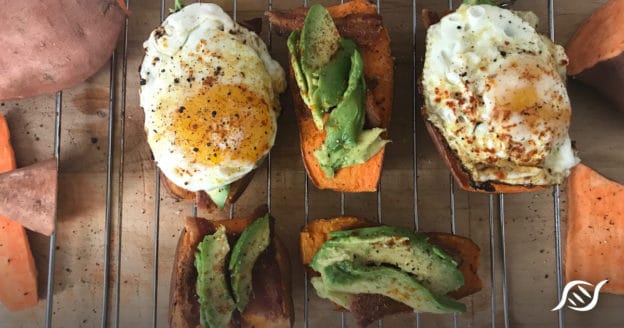

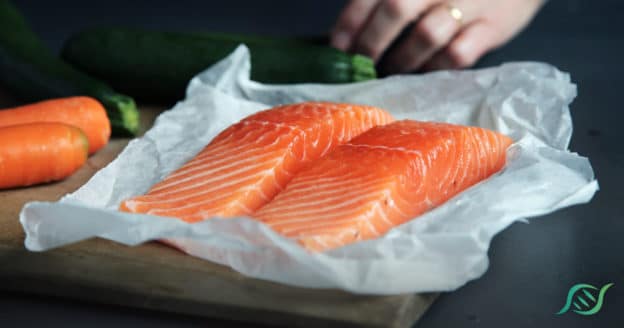
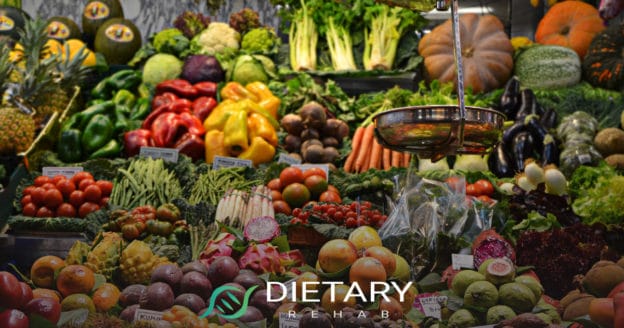
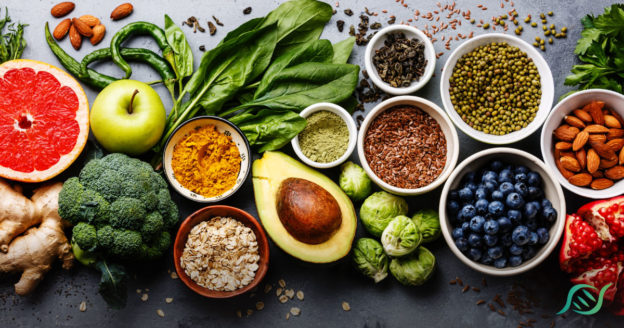

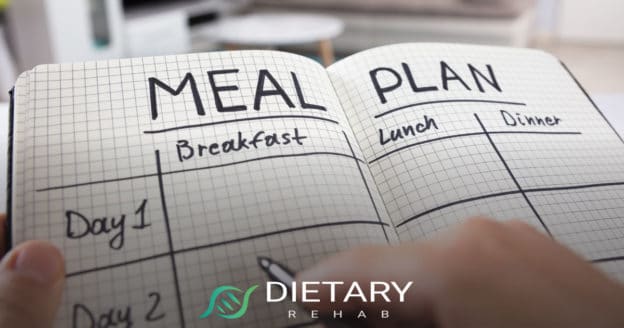


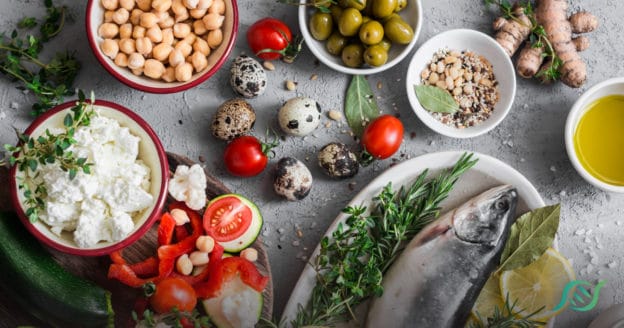

Great article, Mark !
I must say that i am an ‘older adult” at 53 years of age and follow a high fat diet at 45-50 %. My macro split is basically 45/45/10.
I too, have just recently had my blood profile performed and here were my results in comparison to yours…
total chol. 179
HDL chol 97
LDL chol 75
chol/HDL rattio 2
TRIGLY. 35
When i tell my doctor these markers are a result of following a high fat diet he basically just stands there, tongue in cheek, and without comment. I just smile lolol
So…hat’s off to the high fat diet !
Awesome stuff man, thanks for posting. Your TG:HDL is stellar. I’ll be sure to relay this to my senor class I teach as some of them are still worried about eating this way.